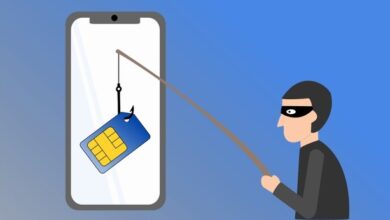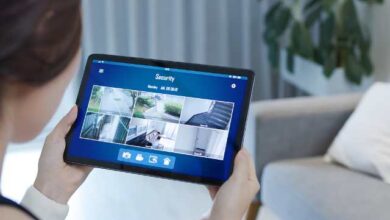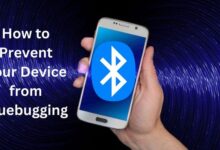Tips for Computer and Network security (Cybersecurity Tips)
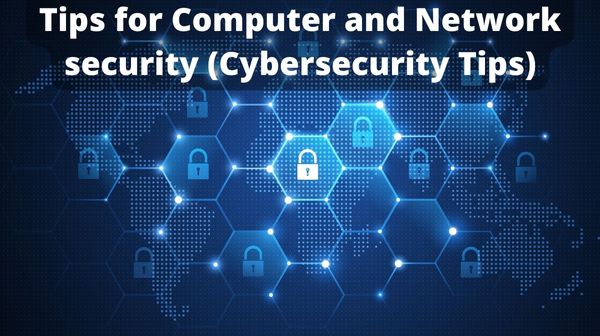
Computer and Network security or Cybersecurity or cyber network security refers to the safeguarding of internet-connected systems, including hardware, software, as well as data, from cyberthreats. Individuals and businesses utilize the method to prevent illegal access to data centers and other digital systems.
A robust cybersecurity plan can provide a strong security posture against harmful attacks aimed at gaining access to, altering, deleting, destroying, or extorting critical data from a company’s or user’s systems. Cybersecurity is also important in thwarting attacks that try to disable or impair the operation of a system or device.
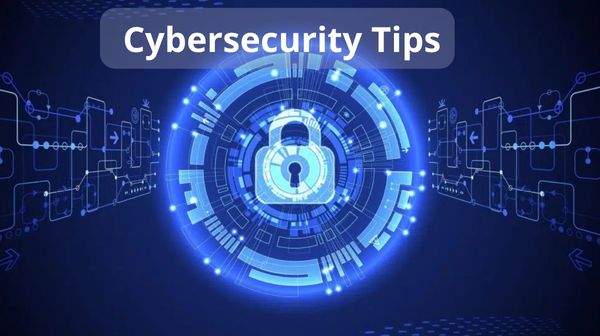
Tips for Computer and Network security or Cyber security advice
Ensure that your software is up to date
Software updates are often provided for three reasons: to provide new features, to patch known flaws, and to improve security.
To secure yourself from new or current security problems, always update your software to the most recent version.
Avoid opening suspicious emails
If an email appears to be strange, do not open it because it could be a phishing attempt.
Someone could be impersonating another person or business in order to acquire access to your personal data. Emails may also contain attachments or URLs that might infect your computer.
Make sure your hardware is up to date
Computer hardware that is more than ten years old may be unable to support the most recent software security updates. Furthermore, ageing gear makes it more difficult to respond to cyber-attacks if they occur. Make sure you’re using the most up-to-date computer hardware.
Make use of a safe file-sharing service
To prevent unauthorized access as well as keep your assets safe, use a secure file access permissions to encrypt your files while they’re in rest and in transit. After all, the services you use to share your documents are only as safe as the methods you use to share them.
Anti-virus and anti-malware software should be used
It’s impossible to be completely safe against malware as long as you’re linked to the internet. However, having an anti-virus and at least one anti-malware programme installed on your PCs can greatly lessen your susceptibility.
To make your connections more private, use a VPN
Use a vpn connection for a more secure and private network (VPN). Even from your internet provider, it will encrypt your connection as well as protect your personal information.
Before you click on a link, double-check it
Links can easily be misrepresented as something they aren’t, so double-check before clicking on one. By hovering over the link in most browsers, you can see the target URL. Before you click on a link, double-check it.
Set a Secure Password
Make a greater effort to create strong passwords. You can use a tool to determine the security of your passwords.
When you’re not using Bluetooth, turn it off
Bluetooth can be used to hack devices, allowing your personal information to be taken. Turn off your Bluetooth if you haven’t used it in a while.
Activate two step verification
To keep your accounts more secure, several platforms now allow you to setup 2-step verification. It’s an additional degree of security that helps confirm that you’re the one accessing your account and not someone else. When you get the opportunity, turn on this security feature.
Adware should be removed from your computers
Adware gathers information about you in order to provide you more relevant advertisements. To protect your privacy, it’s best to remove all forms of adware from your computer. Clean your PC of adware and unwanted apps with this utility.
Check for HTTPS on websites twice
When you visit a website that doesn’t use HTTPS, you can’t be sure that the information you send to the site’s server is safe. Before you hand out confidential or personal data, double-check that the site is using HTTPS.
Don’t keep sensitive information in unsecured places
When keeping information online, you should keep it in a secure location where unauthorised individuals cannot access it.
Viruses should be checked on external storage devices
Malware can infect external storage devices just as easily as internal storage systems. The infection might propagate if you connect an infected external device to your computer. Before using an external device, make sure it is malware-free.
When possible, avoid using public networks
When you join a public network, you’re exchanging it with everyone else who has joined as well. Any data you send or receive over the internet is susceptible. When using a public network, stay away from it or use a VPN if you must.
Avoid the “I’m safe enough” mindset
There’s no such thing as “secure enough” unless you’re fully cut off from the rest of the world. Despite the fact that large corporations such as Facebook invest millions of dollars in security each year, they are still vulnerable to cyber attacks.
Invest in security improvements
Try to invest in security updates when they become available, as suggested in the prior suggestion. It’s preferable to pay for security charges rather than the penalties of a security breach!
Important data should be backed up
A security breach might result in the loss of vital information. To ensure that you’re ready to recover data if it’s lost, make sure your vital data is regularly backed up in the cloud or on a local storage device.
Train employees
To make cybersecurity working, make sure your staff are very well, in sync, and continuously practicing security procedures. A single blunder by a poorly trained individual can sometimes bring a whole security system crashing down.
Use HTTPS on your website
Installing an SSL certificate and enabling HTTPS on your website can help encrypt all data sent between an user’s browser as well as your web server.
Engage the services of a “White Hat” hacker
Hackers aren’t all bad. Some hackers make security flaws public in order to help others strengthen their cybersecurity by giving them information about security flaws and allowing them to be patched. “White hat” hackers are the ones that do this. It might be beneficial to hire one to assist you in identifying risks you were previously unaware of.
Read Also- How To Estimates Toll Charges With Google Maps
These are some Tips to secure computer and Network or cybersecurity tips.

